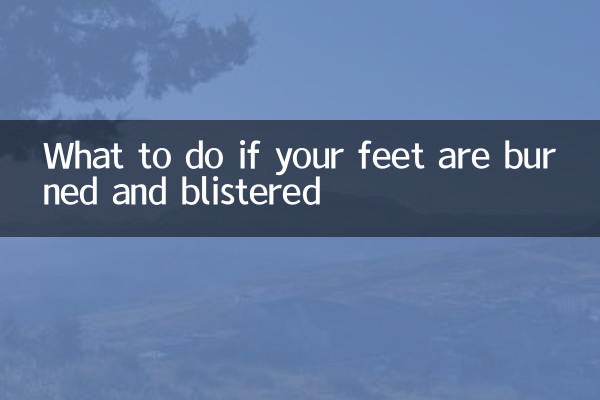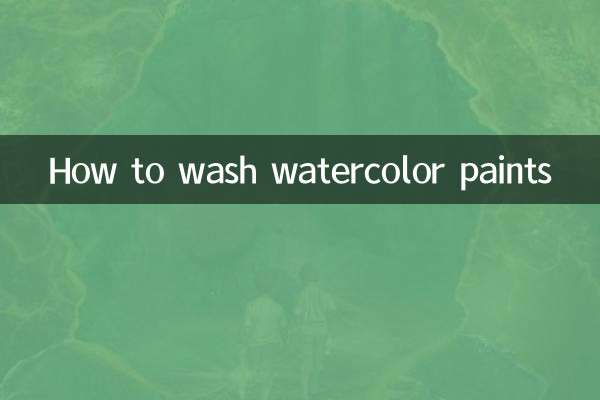What to do if your feet are burned and blistered
In daily life, burns and blisters on the feet are a common accidental injury. Proper handling of scalds can not only relieve pain, but also avoid infection and scarring. This article will combine popular topics and hot contents across the network for the past 10 days to provide you with a detailed processing guide.
1. Common causes of blistering of feet

Scalds and blisters of feet are usually caused by contact with high-temperature objects or liquids, such as:
| reason | Proportion |
|---|---|
| Hot water scald | 45% |
| Hot oil scald | 25% |
| Steam scalds | 15% |
| Contact with other high-temperature objects | 15% |
2. Emergency treatment steps for burns and blisters in feet
1.Cool immediately: Rinse the scalded area with running cold water for 15-20 minutes to reduce the skin temperature and relieve pain and swelling.
2.Avoid breaking bubbles: Blisters are the body's natural protection mechanism, and breaking them can lead to infection.
3.Clean the wound: Use gentle soap and water to gently clean the scald area and avoid using irritating liquids such as alcohol or iodine.
4.Apply ointment: Apply to the wound with scald ointment (such as silver sulfadiazine cream) and cover it with sterile gauze.
5.Bandage protection: Gently bandage with clean gauze or bandage to avoid friction and contamination.
3. Things to note when burning feet and blistering
| Things to note | illustrate |
|---|---|
| Do not use ice cubes | Ice can cause frostbite and aggravate skin damage. |
| Do not apply toothpaste or soy sauce | These substances may irritate the skin and increase the risk of infection. |
| Avoid tight shoes and socks | Tight shoes and socks may rub blisters, causing rupture. |
| Observe signs of infection | If redness, swelling, suppuration, fever, etc., you should seek medical treatment in time. |
4. Rehabilitation time for burns and blisters
The recovery time of a scald depends on the severity of the scald:
| Scald degree | Rehabilitation time |
|---|---|
| One time scald (slight redness and swelling) | 3-5 days |
| Second degree scald (blister) | 1-2 weeks |
| Third degree scald (skin necrosis) | Need to seek medical treatment |
5. Discussions related to scalds on the Internet in the past 10 days
1.Essential items for home first aid kit: Scald ointment, sterile gauze, etc. have become popular search terms.
2.Natural therapy controversy: Some netizens recommend applying aloe vera or honey to burn, but experts recommend using it with caution.
3.Prevention of scalds in children: Parents share their experiences on how to avoid scalding in children at home.
4.Diet conditioning after scald: High-protein, vitamin-rich foods help wound heal.
6. When do you need medical treatment?
If the following conditions occur, seek medical treatment immediately:
- The scald area is greater than the size of the palm.
- The scald area is on the face, joints, or genital areas.
- Signs of infection (red, swelling, suppuration, fever).
- The pain cannot be relieved or continues to worsen.
7. Tips to prevent foot scalds
1. Test the water temperature first when taking a bath to avoid direct contact with high-temperature water.
2. Wear non-slip shoes in the kitchen to avoid hot oil splashing on your feet.
3. Avoid direct contact with the skin when using a hot water bag.
4. First aid medicines are available at home for timely treatment.
Through the above content, I believe you have a more comprehensive understanding of how to deal with burns and blisters in your feet. Remember, timely and correct handling is the key to avoiding sequelae!

check the details

check the details